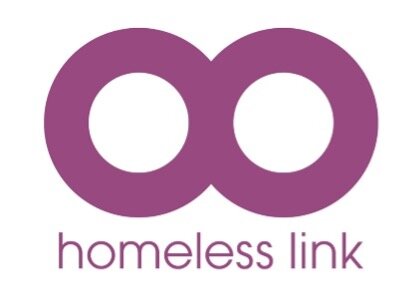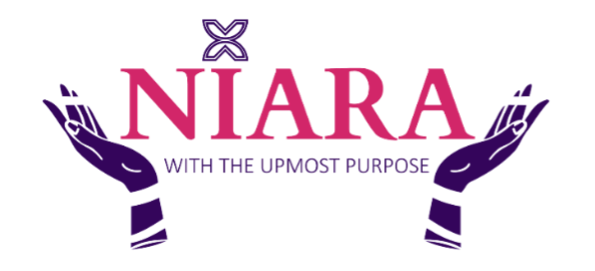Black and Minoritised Women’s Anti-Racism Feministo for the Ending Violence Against Women’s Sector
“You have to act as if it were possible to radically transform the world. And you have to do it all the time.”
Who We Are
- We are Black and minoritised women working to end Violence Against Women and Girls. We are women of the diaspora from former colonies of the British empire and other parts of the global south. We are migrant women from countries that are impacted by exploitative economic policies causing social and ecological devastation. We are women subjected to the ongoing legacy of colonialism, neoliberalism, structural inequality and state violence. We are women from communities who continue to face systemic and institutional oppression in a country that remains unaccountable for this harm, death and destruction.
Why We Support the Ending VAWG Sector's Anti-Racism Charter
- We believe that the Anti-Racism Charter signifies and represents a call to action to end racism in the VAWG sector. Through an intersectional lens we are addressing racism specifically and oppression more generally.
- By endorsing the Anti-Racism Charter, we believe that we are tackling the harm and oppression of racism in our sector and that the priority issues and commitments identified in the Charter are needed to ensure the meaningful engagement with anti-racism action across the sector.
- We believe that by implementing the actions of the Anti-Racism Charter that we can support the sector to move from performative allyship following the murder of George Floyd to transformative change and action.
- We believe that transformative change can only emerge when we name the racialised oppression that we have been subjected to and call out the ways that it manifests itself in our sector.
The Importance of the Anti-Racism Charter in a UK Context
- As survivors of racism who deal with the on-going trauma of racial oppression we fully endorse the principles of the ending Violence Against Women and Girls sector's Anti-Racism Charter.
- The Anti-Racism Charter comes from a collective space of activism in response to racism that we and the women we support have experienced in the ending VAWG sector. We recognise that the brutal murder of George Floyd galvanised a sector-wide response to seek justice and end racism, but racism is not something that only occurs elsewhere, across the ocean, Racism also happens on these islands and so it must be recognised and acted upon in the UK context.
- We acknowledge that in the UK racism has enabled targeted perpetration against our communities including the murder and police killings of black and minoritised men, women and children and has institutionalised violence against women and girls.
Outlining the Struggle against Racism
- Our understanding and experience of racism, racial injustice and disproportional inequity are central to our struggle against imperialism, white supremacy and patriarchy. In order to reimagine a re-envisioned society, as we emerge from the pandemic, it is fundamental that we centre experiences of racism. We therefore use intersectionality and transformative feminisms that speak to social change and ground our commitment to this work. The process of grounding anti-racism is pivotal in addressing violence against all women and girls.
- Racism is a process of dehumanisation and the harm of racism is part of a lived experience that names Black and minoritised people as 'other', 'outsider', 'foreigner' and 'migrant'. This harm is further translated into social and public policy and the conditions under which it is created and implemented. Thus, society is stratified and political and economic systems operate in exclusionary ways that manifests itself as under-representation, disenfranchisement, and subjection to race hate crime.
- As Black and minoritised women we know that lived experiences of racism will differ from group to group however it is vital for us to be able to define our experiences as racism. We understand that when our experiences are not defined by us/for us, using the words we choose, that it leads to an erasure of our experiences and a silencing of our voices.
- In struggle, as Black and minoritised women, we move from margin to centre. We bring ourselves fully into the work of social justice into the space where the pain of oppression is shared, healing is undertaken collectively and we use the power of transformative politics to conjure consciousness. When this space becomes unsafe it inhibits our creativity, imagination, expression and well-being. Therefore, we must name our own strategies of support that enable us to recover from the harms of racism.
The Need for Collective Action by Black and Minoritised Women
- In doing this work, Black and minoritised women have to repeatedly confront and experience deep-rooted racism. We find ways to work both with and in these racialised systems and structures of power by seeking to revolutionise them through collective resistance.
- In any struggle, we must agree a set of principles that enable us to work together and remain critically engaged. This will involve the deconstruction of both power and the dynamics of control that inform structural inequalities.
- We are committed to working collectively in order to progress and achieve our goals whilst being prepared for the milestones of struggle. When we are in safe spaces we are able to identify when we may need to revisit our commitment to our politics and strengthen our solidarity. Our collective anti-racism work will aim to both elevate and uplift each individual sister, whilst remaining a safe space in which harm is challenged.
We have signatures from Black and Minoritised staff at the following organisations:
Full list of signatories:
Dr. Akima Thomas, Clinical Director, WGN
Amna Abdul, Lead for children and young people, Women’s Aid
Anber Raz, Co-Chair, Imkaan
Andrea Fonseca, Co-founder and Director, TeSer cic
Andrea Simon, Director, End Violence Against Women Coalition (EVAW)
Angie Herrera, Refuge Strategy Coordinator, Imkaan
Annetha Mills, Founder & CEO, Niara
Dr. Ava Kanyeredzi, University of East London and Black Church Domestic Abuse Forum
Aygul Ozdemir, Community Engagement & VAWG Service Manager, KMEWO
Baljit Banga, Executive Director, Imkaan
Benaifer Bhandari, CEO, Hopscotch Women’s Centre
Caroline Ratner, Vice-Chair, JWA
Claudia Croppo, Co-founder and Director, TeSer cic
Cyrene Siriwardhana, Legal and Policy Advisor, Surviving Economic Abuse (SEA)
Deniz Ugur, Deputy Director, EVAW
Firoza Mohmed, Chief Executive Officer, Humraaz Support Services
Gabriela Quevedo, Advocacy, Community and Learning Director, LAWA
Girijamba Polubothu, Manager, Shakti Women’s Aid
Gurpreet Virdee, Director OF Operations and Development, WGN
Helene Berhane, Domestic Violence Homicide Review Support Officer, Standing Together
Hindu Nari Sangh
Huda Jawad, Co-founder of Faith & VAWG Coalition
Ikamara Larasi, Communications Co-ordinator, Imkaan
Isabel Ros López, Membership Manager, EVAW
Ishah Jawaid, Founder, WOC Azadi Collective
Jane Lanyero, Co-ordinator, African Women's Care
Jasbinder Kaur, Training Officer, Surviving Economic Abuse (SEA)
Joanne Mukoko, Membership Intern, Imkaan
Kanika Agarwal, Policy Intern, Imkaan
Kaveri Sharma, Member of the Board of Trustees, Imkaan
Layla Madanat
Malika Adeel-Azam, Senior Domestic Abuse Support Worker/ Fundraising Officer, ANAH Project
Malinda Mukuma
Marai Larasi, Community Organiser
Meril Eshun-Parker, Director, London Black Women’s Project (LBWP)
Michaela Campbell, National Practice and Development Project Manager, Ending Women's Homelessness
Naomi Dickson, CEO, Jewish Women’s Aid
Dr. Neha Kagal, Activist and Researcher
Philomena Azu- Domestic Abuse and Housing – London Borough of Islington
Rehaila Sharif, Women's Aid Federation England
Samina Ansari, Activist, Scotland
Sandra Manak, Interim CEO, PanahGhar
Sarbjit Ganger, Director, Asian Women's Resource Centre (AWRC)
Sawsan Salim, Director, KMEWO
Shaki Obadina, Operations Coordinator, Imkaan
Shaminder Ubhi, Director, Ashiana Network
Dr. Shim Vereker BDS, Contracts and Programme manager, IRISi
Yenny Tovar, Executive Director, Latin American Women’s Aid (LAWA)
Zainab Al-Shariff, Independent Domestic Violence Advocate, Al Hasaniya MWC- Part of the Angelou Partnership
Zlakha Ahmed, Chief Executive, Apna Haq
Meena Kumari, Director and founder, H.O.P.E Training & Consultancy
Jacqui Fray, Manager, Amadudu Women’s refuge

































